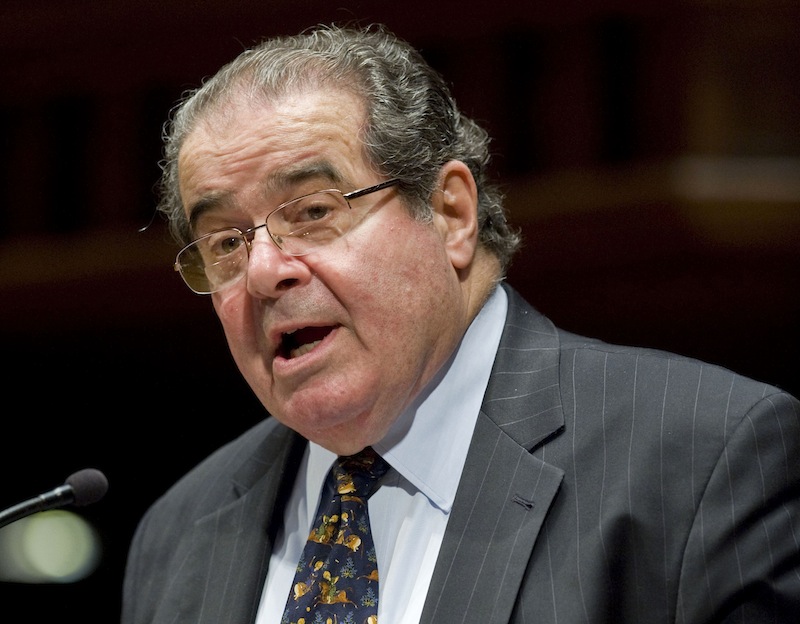Arizona and Kansas have taken Supreme Court Justice Antonin Scalia’s suggestion and sued the Obama administration in a continuing effort by both states to require proof of citizenship in order to register to vote.
The lawsuit, filed Wednesday, was announced by Arizona’s Attorney General Tom Horne and Secretary of State Ken Bennett, and joined by Kansas Secretary of State Kris Kobach, a high-profile architect of restrictionist laws, including Arizona’s Senate Bill 1070.
The issue involves the 1993 National Voter Registration Act, also known as the “motor voter” law, which requires states to let people register to vote simply by attesting they are citizens, when renewing their driver’s license or applying for social services. A 2004 law adopted by the voters in Arizona added the requirement that people registering to vote also provide proof of citizenship. The Supreme Court struck down that law earlier this year, concluding that it is trumped by the motor voter law. Arizona, the court ruled, could not add new requirements to the form prescribed by the federal law.
But during oral arguments in March, Scalia expressed his bafflement that Arizona did not launch a broader assault on the constitutionality of the NVRA form, written by the Election Assistance Commission. The state simply contended in that case that its proof of citizenship law did not violate the federal law. Even Scalia disagreed with that, voting against Arizona in the ruling, but also giving them a valuable tip in his 7-2 majority opinion.
“We hold that [the NVRA] precludes Arizona from requiring a Federal Form applicant to submit information beyond that required by the form itself,” Scalia wrote in the June decision. “Arizona may, however, request anew that the EAC include such a requirement among the Federal Form’s state-specific instructions, and may seek judicial review of the EAC’s decision under the Administrative Procedure Act.”
Earlier this summer, the two secretaries of state asked the EAC to approve changes to their states’ versions of the forms that would require proof of citizenship for voter registrants. The EAC staff declined to act on those requests, citing a lack of a quorum of EAC commissioners.
And now Horne — who defended the Arizona law before the Supreme Court — is taking the justice’s advice. Copycat laws in Kansas, Georgia and Alabama were also in the crosshairs of the ruling and may be affected by the outcome of this new challenge.
“We are pursuing the path set out for us by the U.S. Supreme Court in the case I personally argued last March, in which the court required us to pursue certain avenues prior to their considering our constitutional argument,” Horne said Wednesday. “The argument is that it is unconstitutional for the federal government to prevent Arizona from obtaining the information it needs to enforce its [voter] qualifications. The Supreme Court appeared to be in agreement by saying that that action by the federal government ‘would raise serious constitutional doubts’. After pursuing these procedures, we will win this case and establish Arizona’s right to be sure that only citizens vote in Arizona, and not illegal aliens.”
In the Arizona v. Inter Tribal Council ruling, Scalia suggested the state might win if it launches a broader challenge on the validity of the NVRA form. The argument is that while Congress has the authority to regulate how elections are held, states have the right to protect the integrity of the ballot box. “It would raise serious constitutional doubts,” Scalia wrote, “if a federal statute precluded a State from obtaining the information necessary to enforce its voter qualifications.”






